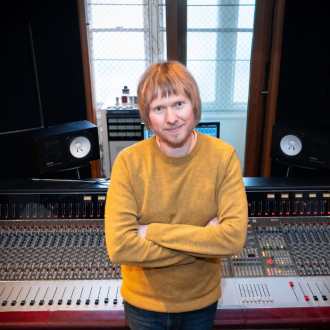- Undergraduate
Music Technology BA (Hons)
Overview
Why study at the University of West London?
- Ranked 30th university in the UK - The Guardian University Guide 2025
- Our Music courses are ranked #2 in London for modern universities* - Guardian University Guide 2025
- Number 1 London university for overall student satisfaction - National Student Survey 2024**
- Best university for Student Experience and Teaching Quality in the UK - The Times and Sunday Times Good University Guide 2024
This specialist course offers you the chance to apply music technology in creative ways using professional equipment and software. It is our flagship music technology course and is designed to give you the skills the music industry values most.
Our music technology courses are built on two decades of development and experience. As a student on this course, you will have access to one of the largest audio complexes in Europe and learn from highly experienced tutors.
The London College of Music (LCM) is collaborative, and we will encourage you to take advantage of the many opportunities for recording and networking with musicians, producers, gaming, film students and artists.
View some of our students' recent work.
Level-6 Top-up Option
If you already have a relevant Level 5 qualification (such as a Higher National Diploma, NVQ Level 5 etc) then you can top this up to a full honours degree with our Level 6 Top-up course. This course consists of a full year of studies covering the same modules as Year 3 of the regular degree.

Select your desired study option, then pick a start date to see relevant course information:
Start date:
If your desired start date is not available, try selecting a different study option.
Why study Music Technology with us?


What our students say…
I picked this course because there were none like it in my country. The facilities here are mindblowing. I'd recommend this course to anyone wanting to study music tech.
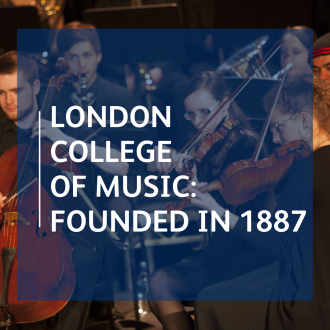

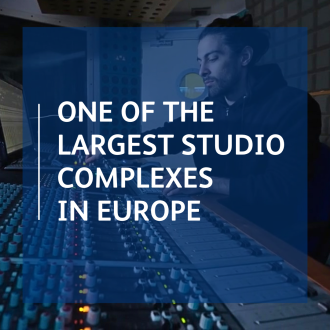

Course detail & modules
On this music technology specialist course, you will acquire and develop the skills you need to work with contemporary sound and music, both pre-and post-production. In addition, you will learn the theory and techniques that are essential for creating music and audio to a professional standard.
While the course will focus on music production, it will also give you the opportunity to apply your work in a broader context and you will explore the fascinating areas of:
- music production and mixing
- game audio
- audio post-production
- surround mixing
- experimental sound art.
We will also help you to hone your business survival skills – essential for any self-employed specialist. Collaboration is an integral part of this course and there will be scope to join forces with students from LCM and other Schools. You will be able to work with musicians performing in a range of styles, including contemporary, pop, jazz, western and classical. Furthermore, you could expand your horizons by working with students in media, video and film, digital animation and games design. These opportunities will help to enhance your CV even before you have graduated.
Throughout the course, you will learn through traditional and applied methods including lectures, workshops and live sound work. Your recording and live sound work will take place in our dedicated workshops, so there is no need to book sound studios.
Compulsory modules
-
Experimental Sound
In this module, you will have to design an experiment that generates an audio experience. You will have the freedom to explore and develop individual ideas and abilities in the context of sound, producing a portfolio that shows confident expression and creative risk-taking, but with technical accomplishment.
-
Project
In the final year of your degree course, you will create your own project with a high degree of independence. You will be allocated a supervisor and then given the freedom to create a piece of work, which you feel really represents you as a student. You will be guided and supported, but this is your vision and your chance to show the world what you have achieved while you’ve been at UWL.
-
Creative Sound for Games
Gaming is a fast growing and lucrative area of the entertainment industry. By the end of the module you will have a solid appreciation of the power of audio for games, combined with the skills to develop audio assets and implement them in middleware. This in turn will form the basis of a show-reel which can be used for future promotion and collaboration within the gaming industry.
-
Mixing Music
'Mixing Music' embraces the notion of balance-mixing as an art (form), at the same time celebrating its dependence on a firm technical foundation, repertoire and vocabulary of engineering skills, combined with a refined conceptual understanding of the three-dimensional stage of an envisioned sonic illusion. Focusing on developing and specialising students’ mixing skill to an advanced level, the module provides a practice-based context for the application, evolution and acquisition of advanced mix-techniques.
Taking into account contemporary mixing strategies, musical contexts and professional outputs/formats, the module offers opportunities to approach creative mixing projects over a range of stylistic and technical challenges. As such, this mixing curriculum focuses on genre-specific techniques, and a range of software, hardware and hybrid workflows, encouraging the development of mixing folios that showcase a wide-ranging palette of techno-artistic skills. Ultimately, the module also requires both the critical evaluation of, and reflection upon both mixing practices and end outcomes – framed in the context of the history, culture, technological development and the current aesthetics of the artform. -
Live Event Production
Will focus on developing, and specialise on, live music mixing skills to an advanced level. The module provides a practice-based context for the application and acquisition of advanced mixing techniques for a variety of platforms and setting applications to allow the student to manage and troubleshoot technical issues and provide appropriate technical solutions; taking into account contemporary approaches to mixing, professional outputs/formats and also future facing audio consumption requirements.
-
Audio Post-Production
The module is both practical and theoretical and is designed to give students the opportunity to explore and develop creative techniques to produce sound design, ADR, foley and audio post for a range of post-production requirements.
Compulsory modules
-
Music Production
This module offers you the opportunity to develop as a creative user of professional DAW systems. Through the module you will gain fluency in the use of:
- hardware and software
- synths
- samplers
- controllers
You will also grasp the essential concepts required for next level music production.
-
Audio Principles
Recording theory is a broad module introducing a variety of topics vital to the field of music technology. It also serves as a base for the more practical and technically orientated modules in the music technology degree courses at LCM/UWL. It is a key module designed to equip students with a grounding in the core knowledge and techniques germane to the disciplinary nature of the music technology courses.
The module aims to provide the student with a solid grounding in the theory, techniques and terminology associated with contemporary acoustic and digital recording practice, as well as ensuring a fundamental grasp of the basic physics of sound and sound propagation.
-
Portfolio Development
This module focuses on the development of your portfolio career. Increasingly, the successful modern freelancer requires a diverse range of skill sets in:
- writing styles
- technique
- arrangement
- production
- the ability to expand your client base and income streams.
Workflow demands will be examined in a time managed ethos to allow best practice. The module also explores creative outlets, future facing opportunities and residual income streams to allow you to pursue a career as a music professional whilst developing your portfolio.
-
Popular Music Analysis
If you understand how other people’s music works, it will help you develop your own creative vision. Different music genres all have their own particular sonic signature and this module is where you learn how to identify and talk about the elements which have defined recorded music, from past to present allowing you to absorb the techniques and mix aesthetics to build them into your tracks.
-
Studio Recording
Recording Practice will help you develop the required skills needed to operate studio recording technology to a high standard. The module will further the listening skills covered in Recording Theory and will increase your sensitivity to different recording and musical contexts. It covers a comprehensive overview of contemporary studio technology and the recording process.
The module will also extend ear-training techniques and examine each component of studio technology in detail. In addition, it will address how the techniques of recording are coupled to the technology, providing each student with a backbone of knowledge designed to help the recording demands of the second year.
-
Live Sound Practice
This employability-focused module will provide students with an overview of the technology and techniques required in live-sound engineering. The module focuses on both practical and technical content, providing experience in practical engineering for the performance of live popular music. Learners will also be introduced to the fundamentals of specifying sound reinforcement systems for a range of applications.
Compulsory modules
-
Applied Studio Techniques
This module develops the creative engineering skills gained from the Recording Practice module and to then adds session-planning skills, production/mixing skills, modern recording techniques and remixing. Students will be encouraged to take responsibility for complete productions in a professional-standard recording studio.
-
Sounds Grooves and Genres
The module looks at the construction, and deconstruction of music. Progressive research and critical review of what makes up a record will allow greater perspective and understanding into the historical, technical, stylistic and cultural contexts surrounding music production and arrangement.
-
Production and Release Strategies
Traditionally, a business led approach has been a key skill for any freelance music professional. Increasingly music industry professionals are also required to develop an entrepreneurial mindset. As the boundaries of digital technologies and media converge, the need to understand how new concepts are generated and practically applied looks set to be one of the key tools for future creative-content practitioners. This module will focus on digital pioneers who displayed creative enterprise in the modern music industry, and will also break down and explain how best to utilise: music platforms, digital-design tools, social channels, historical context and revenue streams.
-
Research Methods for Music Technology
Academia is all about searching for something new and we use research to do it. Working in the creative arts is very similar, working to find that new sound or production technique, which will set us apart from other artists. In this module these two endeavours are brought together and we will show you how to use the power of research to fuel your creativity.
-
Sound and Music for Screen
The module is putting the student in the role of a ‘Sound Designer’ and ‘Composer’, an increasingly important role in the life of the audio post-production and music freelancer. This module should serve as a springboard for students to proactively engage in this field. By the end of the module students will have created a body of sound and music to picture work, which can serve as an industry standard tool to promote their work with other film makers and content producers to work to near professional workflow standards and circumstances, reflective of current industry practice.
Optional modules
-
Live Sound Production
This module is focussed on employability and provides you with a deep understanding of the processes involved in musical theatre and play production. The module will focus on the techniques and roles involved within the sound department, from the sound designer through to the sound operators. In addition to this there will also be contextualisation through an introductory study of theatre practice.
-
LCM Music Factory
LCM Music Factory embraces the network and community available within London College of Music and the University to provide real-life scenarios for the production of original music with a contemporary stylistic focus through collaboration. The fundamental aim of this module is to offer the student an opportunity to experience both the pressure and challenges of producing recorded artefacts to a specific musical brief. There is also a significant research aspect to the module, with assessment based upon both practical and theoretical knowledge in equal measures.
Compulsory modules
-
Major Project
In the final year of your degree course you will undertake a major project. This module is your chance to create your dream project with a high degree of independence.
You will be allocated a supervisor and then given the freedom to create a piece of work, which you feel really represents you as a music technology student.
You will be guided and supported, but this is your vision and your chance to show the world your achievements.
-
Creative Sound for Games
Gaming is a fast growing and lucrative area of the entertainment industry. By the end of the module you will have a solid appreciation of the power of audio for games, combined with the skills to develop audio assets and implement them in middleware. This in turn will form the basis of a show-reel which can be used for future promotion and collaboration within the gaming industry.
-
Live Event Production
Will focus on developing, and specialise on, live music mixing skills to an advanced level. The module provides a practice-based context for the application and acquisition of advanced mixing techniques for a variety of platforms and setting applications to allow the student to manage and troubleshoot technical issues and provide appropriate technical solutions; taking into account contemporary approaches to mixing, professional outputs/formats and also future facing audio consumption requirements.
-
Audio Post-Production
The module is both practical and theoretical and is designed to give students the opportunity to explore and develop creative techniques to produce sound design, ADR, foley and audio post for a range of post-production requirements.
-
Mixing for Screen and Broadcast
This module will develop on and off specialisms in mixing to an advanced level, the module provides a practice-based context for the application, evolution and acquisition of advanced mixing techniques for a variety of platforms and format-setting applications, to allow the student to manage and troubleshoot technical issues and provide appropriate technical solutions for the master mix.
-
Experimental Sound
In this module, you will have to design an experiment that generates an audio experience. You will have the freedom to explore and develop individual ideas and abilities in the context of sound, producing a portfolio that shows confident expression and creative risk-taking, but with technical accomplishment.
Entry requirements
These can include:
- A Levels at grade B, B and C, or above
- BTEC Extended Diploma with Distinction, Merit, Merit
- Access to HE Diploma
- T Levels
You also need GCSE English and Maths (grade 9 - 4 / A* - C) or Level 2 equivalents.
Candidates without a level 3 Music Technology qualification are required to provide a portfolio.
Looking for BA (Hons) Music Technology with Foundation Year?
Mature applicants (aged 21+): If you do not hold the qualifications listed but have relevant work experience, you are welcome to apply. Your application will be considered on an individual basis.
Level 5 (year 2) entry
To directly enter the second year of this course you will need to show appropriate knowledge and experience. For example, you are an ideal candidate if you have 120 undergraduate credits at Level 4 or a CertHE in a related subject area.
Level 6 (year 3) entry
To directly enter the third year of this course you need to show appropriate knowledge and experience. For example, you are an ideal candidate if you have 240 undergraduate credits (at Levels 4 and 5), a DipHE, Foundation Degree or HND in a related subject area.
Looking for BA (Hons) Music Technology with Foundation Year?
You need to meet our English language requirement - a minimum of IELTS 5.5 for each of the 4 individual components (Reading, Writing, Speaking and Listening). Visit our English language requirements page for information on other English language tests we accept.
You also need academic qualifications at the same level as UK applicants. In some countries where teaching is in English, we may accept local qualifications. Check for local equivalents.
We offer pre-sessional English language courses if you do not meet these requirements.
Looking for BA (Hons) Music Technology with Foundation Year?
Mature applicants (aged 21+): If you do not hold the qualifications listed but have relevant work experience, you are welcome to apply. Your application will be considered on an individual basis.
Level 5 (year 2) entry
To directly enter the second year of this course you will need to show appropriate knowledge and experience. For example, you are an ideal candidate if you have 120 undergraduate credits at Level 4 or a CertHE in a related subject area.
Level 6 (year 3) entry
To directly enter the third year of this course you need to show appropriate knowledge and experience. For example, you are an ideal candidate if you have 240 undergraduate credits (at Levels 4 and 5), a DipHE, Foundation Degree or HND in a related subject area.
Looking for BA (Hons) Music Technology with Foundation Year?
Fees & funding
Please note:
- Fees for the 2026/27 academic year and onwards may be subject to Government regulation and change.
- Tuition fees are charged for each year of your course. If your course runs for two years or more, you will need to pay the fee for each academic year at the start of that year.
- If your course runs for less than two years, the cost above is for your full course and you will need to pay the full fee upfront.
- If no fee is shown above then the fees for this course are not available yet. Please check again later for updates.
Funding your studies
You may be eligible for a student loan to cover the cost of tuition fees, or a maintenance loan. Additional funding is available to some types of students, such as those with dependants and disabled students.
We offer generous bursaries and scholarships to make sure your aspirations are your only limit. In recent years, hundreds of students have received our Full-time Undergraduate Student Bursary.
Additional scholarships specifically for music students are also on offer.
View full details, including conditions and eligibility.
Please note:
- Fees for the 2026/27 academic year and onwards may be subject to Government regulation and change.
- Tuition fees are charged for each year of your course. If your course runs for two years or more, you will need to pay the fee for each academic year at the start of that year.
- If your course runs for less than two years, the cost above is for your full course and you will need to pay the full fee upfront.
- If no fee is shown above then the fees for this course are not available yet. Please check again later for updates.
International students - funding your studies
We offer scholarships for international students including International Ambassador Scholarships.
Further information about funding and financial support for international students is available from the UK Council for International Student Affairs.
Teaching staff
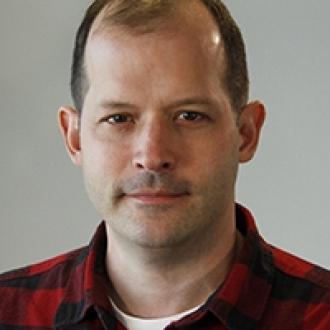
Sam Sutton
I am a Senior Lecturer in Music Technology, specialising in sound design and production for media. I compose for advertisements, computer games and film, and bring this experience into my teaching practice at the London College of Music.
I am a Senior Lecturer in Music Technology, specialising in sound design and production for media. I compose for advertisements, computer games and film, and bring this experience into my teaching practice at the London College of Music.
Study & career progression

I picked this course because there were none like it in my country. The facilities here are mindblowing. I'd recommend this course to anyone wanting to study music tech.
Pauly Maskal
Once you graduate, you could find work as a:
- Record producer
- Audio post-production
- Sound for games
- Audio/Live engineer
- A&R manager.
You may also choose to advance your studies, please see our postgraduate courses.
How to apply

Head to the UCAS website where you can apply using:
- our institution code - W05
- the UCAS course code (below)
Want to ask us a question first? We would love to hear from you. Contact us free on:
- 0800 036 8888
- courses@uwl.ac.uk
We may invite you to an interview at the university and ask you to submit a portfolio of work. Find out more about music technology portfolios and the interview process.
Apply for this course
- Institution code
- W05
- UCAS code
- currentVariantData.field_p_cv_ucas_code
Next steps after making your application
We aim to make a decision on your application as quickly as we can. If we need any more information about your qualifications, we will be in touch.
In the meantime, come and visit us and find out more about what studying at UWL is like. Sign up for an open day or join a campus tour.
Visit us and see for yourself
Talk to our tutors and find out about our courses and facilities at our next open day or join a campus tour.
Our prospectus
All of our courses in one place - download now or order a hard copy.
We're here to help
Any questions about a course or studying at UWL? We're here to help - call us on 0800 036 8888 (option 2, Monday – Friday 10am-4pm) or email us on courses@uwl.ac.uk.

Head to the UCAS website where you can apply using:
- our institution code - W05
- the UCAS course code (below)
Want to ask us a question first? We would love to hear from you. Contact us free on:
- 0800 036 8888
- courses@uwl.ac.uk
We may invite you to an interview at the university and ask you to submit a portfolio of work. Find out more about music technology portfolios and the interview process.
Apply for this course
- Institution code
- W05
- UCAS code
- currentVariantData.field_p_cv_ucas_code
Next steps after making your application
We aim to make a decision on your application as quickly as we can. If we need any more information about your qualifications, we will be in touch.
In the meantime, come and visit us and find out more about what studying at UWL is like. Sign up for an open day or join a campus tour.
Visit us and see for yourself
Talk to our tutors and find out about our courses and facilities at our next open day or join a campus tour.
Our prospectus
All of our courses in one place - download now or order a hard copy.
We're here to help
Any questions about a course or studying at UWL? We're here to help - call us on 0800 036 8888 (option 2, Monday – Friday 10am-4pm) or email us on courses@uwl.ac.uk.

You can apply to us in two ways:
- on the UCAS website – you will need our institution code (W05) and the UCAS course code (at the top of this page)
- directly on our website – follow the ‘apply now’ link below
Want to ask us a question first? Our dedicated international students’ team would love to hear from you.
- Contact the team: international@uwl.ac.uk
We may ask you to submit a portfolio of work and invite you to an interview at the university - or online, if you aren't able to travel here. Find out more about music technology portfolios and the interview process.
Apply for this course
Next steps after making your application
We aim to make a decision on your application as quickly as we can. If we need any more information about your qualifications, we will be in touch.
In the meantime, come and visit us and find out more about what studying at UWL is like. Sign up for an open day or join a campus tour.
Visit us and see for yourself
Talk to our tutors and find out about our courses and facilities at our next open day or join a campus tour.
Our prospectus
All of our courses in one place - download now or order a hard copy.
We're here to help
Any questions about a course or studying at UWL? We're here to help - call us on 0800 036 8888 (option 2, Monday – Friday 10am-4pm) or email us on courses@uwl.ac.uk.

You can apply to us in two ways:
- on the UCAS website – you will need our institution code (W05) and the UCAS course code (at the top of this page)
- directly on our website – follow the ‘apply now’ link below
Want to ask us a question first? Our dedicated international students’ team would love to hear from you.
- Contact the team: international@uwl.ac.uk
We may ask you to submit a portfolio of work and invite you to an interview at the university - or online, if you aren't able to travel here. Find out more about music technology portfolios and the interview process.
Apply for this course
Next steps after making your application
We aim to make a decision on your application as quickly as we can. If we need any more information about your qualifications, we will be in touch.
In the meantime, come and visit us and find out more about what studying at UWL is like. Sign up for an open day or join a campus tour.
Visit us and see for yourself
Talk to our tutors and find out about our courses and facilities at our next open day or join a campus tour.
Our prospectus
All of our courses in one place - download now or order a hard copy.
We're here to help
Any questions about a course or studying at UWL? We're here to help - call us on 0800 036 8888 (option 2, Monday – Friday 10am-4pm) or email us on courses@uwl.ac.uk.
Search for courses
Slideshow






ARTSFEST
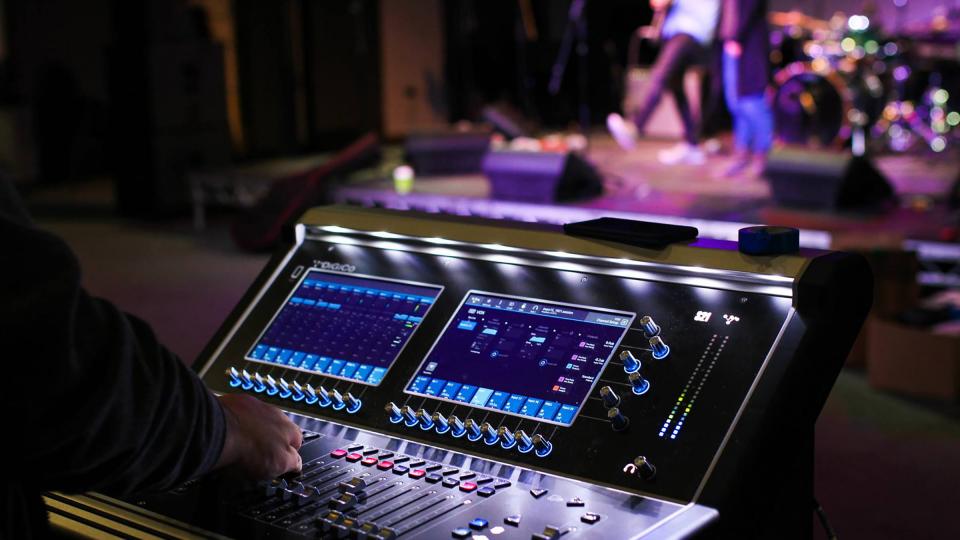
Find out more about the work our students produce and view some of their recent work by visiting our Music Technology ARTSFEST page.
BA (Hons) Music Technology alumni
The London College of Music stands at the forefront of the academic study of music technology and record production. On graduation, you will join the ranks of our successful alumni, including:
- Rhiannon Mair - producer, songwriter, sound engineer and Executive Director of the Music Producers Guild. Nominated for breakthrough producer of the year at the 2019 MPG Awards.
- Ben Baptie - Producer and mix engineer. Has worked with: U2, Lady Gaga, The Strokes, Moses Sumney, Jamie T, London Grammar, Tom Odell. Nominated for producer of the year at the 2019 MPG Awards.
- Robert Orton - mix engineer. Has worked with: Sting, Lady Gaga, Charli XCX, Mumford and Sons, Lana Del Ray, Bruce Springsteen, Enrique Iglesias, Robin Thicke. Has won three Grammys with Lady Gaga.
- John Webber - mastering engineer at Air Studios. Has worked with: David Bowie, Nina Simone, Ray Charles, Miles Davis, MF DOOM, Primal Scream. Worked on the scores for Marvel's Loki, Alien: Covenant, Doctor Who, and the Oscar-nominated Loving Vincent.
- Tom Williams - TV and film sound mixer and ADR recordist. Has worked on: Star Wars Rogue One, Star Wars Episode VII: The Force Awakens, Spectre, and more, and has worked with artists like Amy Winehouse, The XX, Laura Marling, and George Clinton. AMPS TV Award winner and BAFTA Television Craft award winner on Killing Eve. BAFTA-nominated for The Crown.
- Tim Siddall - film sound editor, mixer, and dialogue editor. Has worked on: The Gentlemen, Hitman's Wife's Bodyguard, Aladdin, Tomb Raider, The Wolf of Wall Street, Jack Ryan: Shadow Recruit, and Skyfall.
- Thomas Blazukas - Motion picture sound designer and re-recording mixer. Has worked on: House of Gucci, Ron's Gone Wrong, Belfast, Artemis Fowl, Four Kids and IT, and Last Christmas.
- Josh Adam Bell - sound design: games. Has worked on: Star Citizen.
- Gareth Johnson - studio owner/producer, Stand Alone Productions.
- Daniel Kapuscinski - movie sound designer and dubbing supervisor. Has worked on: Pearl of Indie, Blood Society, Barun Rai and the House on the Cliff.
- Dominic Butler - music producer. Has worked with: The Stanton Warriors.
- Ryan Wilkins - CEO of Raw London. Has worked with: Florence and the Machine, Lily Allen, Beverly Knight, Babyshambles, Keane, Katy Perry, The Drums, Hot Chip, Sigur Ros and The Kooks. Has also worked with companies such as Twitter, Vodafone, Save the Children and Marie Curie.
- Oliver Kadel - founder and head of audio at 1.618 Digital. Clients include: Ford, HSBC, Google, PWC, FIFA, JC Decaux, O2 Academy. Has two Emmy nominations for Micro Monsters with David Attenborough.
- Steve Massey - audio engineer, composer and owner of Freezabox Records. Has worked with Robbie Williams, Primal Scream, Beady Eye and Jarvis Cocker. Clients include BBC.
- Laura Beck - sound engineer at British Grove Studios. Has worked with: Robbie Williams, Anne Dudley, Paloma Faith. Grammy nominated with Prince of Egypt.
You could join their ranks as a qualified and confident music technology specialist.
Facilities
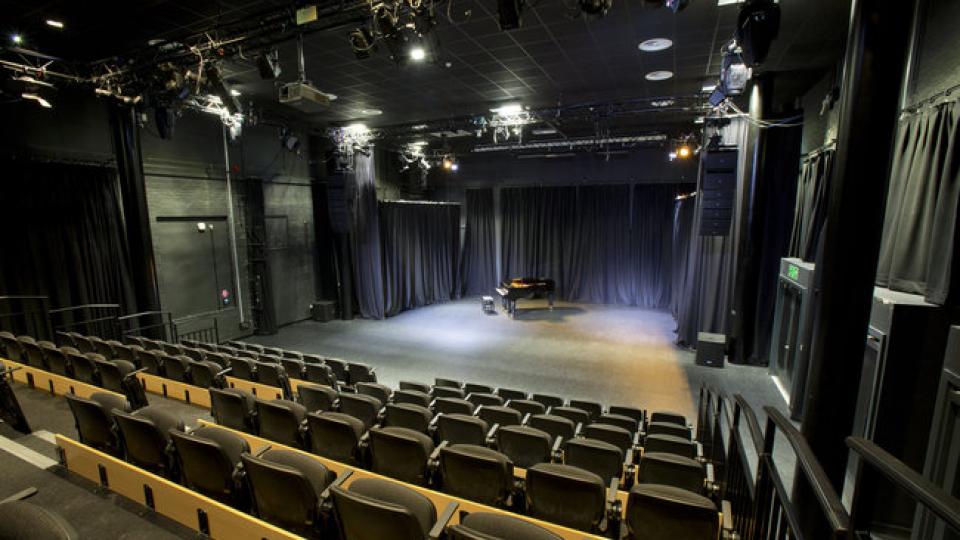
Performance spaces
Our flexible, professionally-equipped performance spaces include Lawrence Hall, a 200-seat black box studio theatre, and Vestry Hall, a classical music performance space featuring a Steinway B Concert Grand piano, concert tuned percussion and seating for up to 150
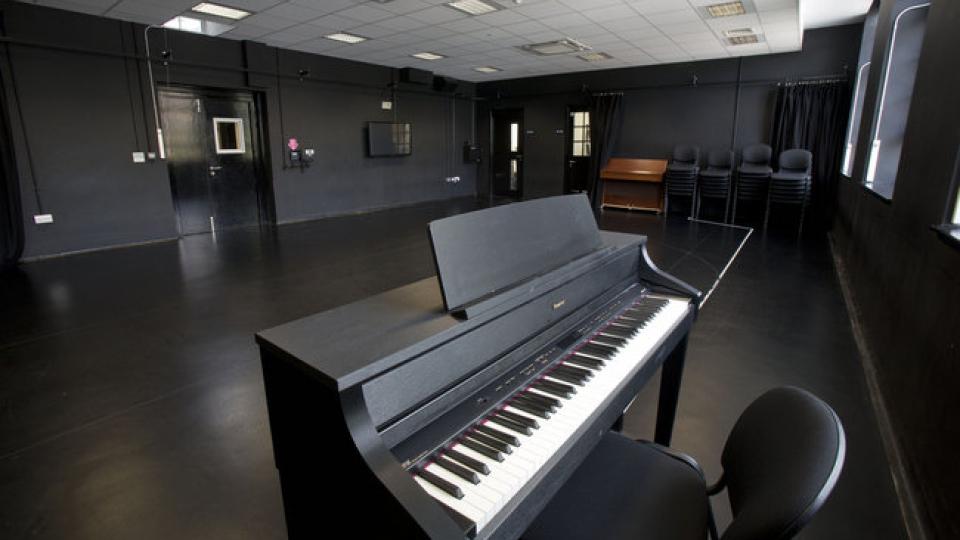
Production studios
We have four black box production rooms featuring performance dance floors, ballet barres, wall mirrors and ¾ drapes. All rooms have PA and AV support in all rooms. The digital stage pianos are by Roland.
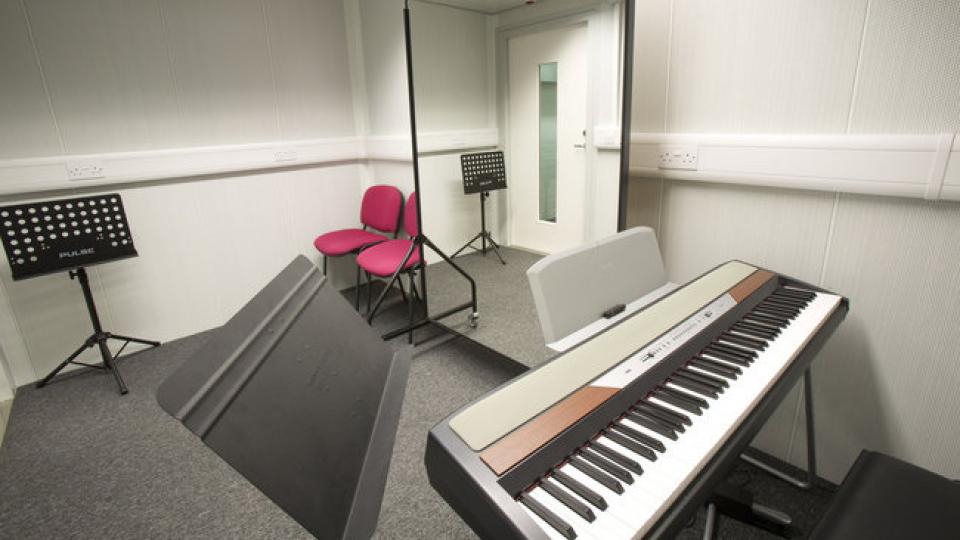
One-to-one teaching pods
We have five acoustically isolated teaching pods featuring Roland and Korg digital pianos and mirrors to facilitate one-to-one teaching in voice.
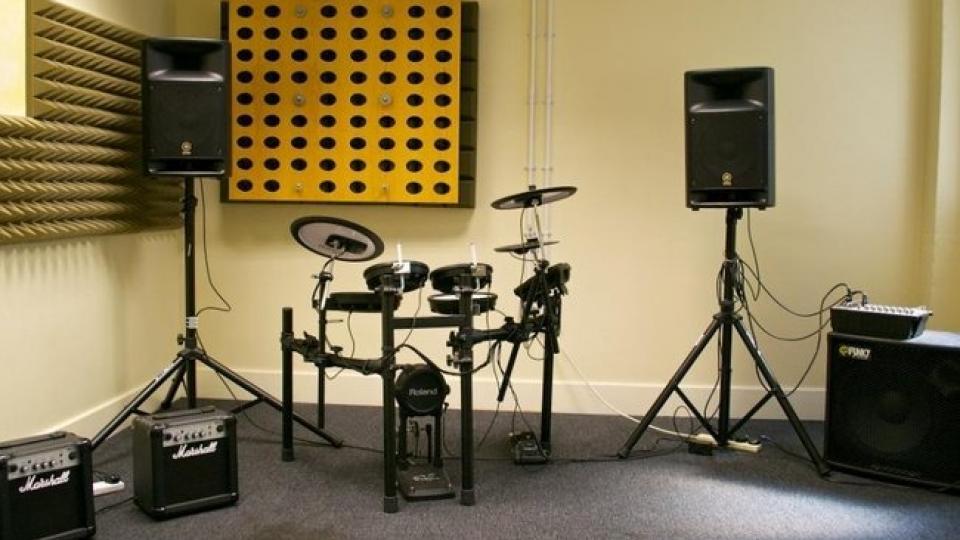
Music performance rooms
All music performance rooms feature drums and backline plus PA support.
- Drums by Roland and Pearl.
- Backline by Marshall, Orange, Line 6, Fender and Gallien-Kruger
- Stage pianos by Korg and Roland
- Synths by Roland and Kurzwiel
- PA by Yamaha, ABT and Nexo.
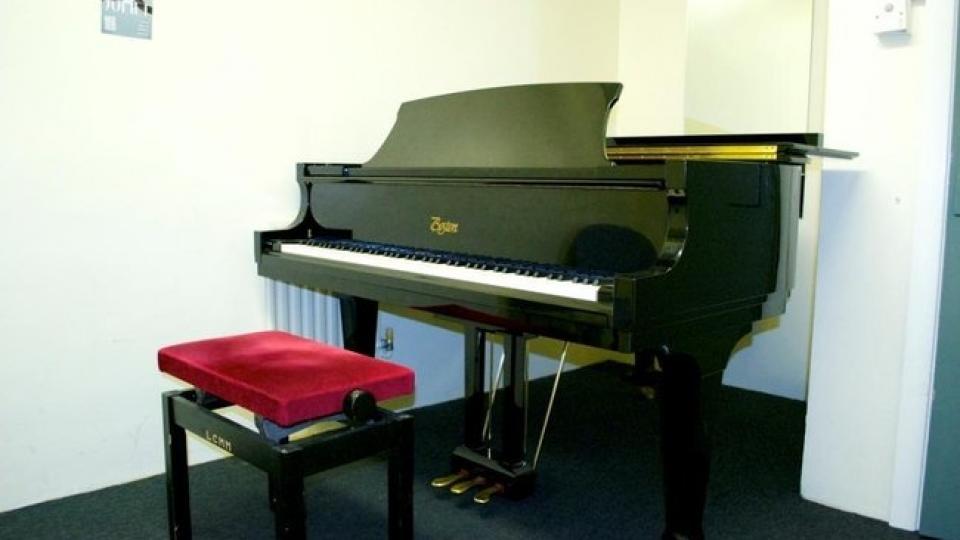
Basement practice rooms
- All LCM practice rooms benefit from LCM’s All Steinway School status to bring you the very best instruments.
- Three percussion practice and teaching rooms.
- Percussion rooms feature Pearl kits with recording and playback systems.
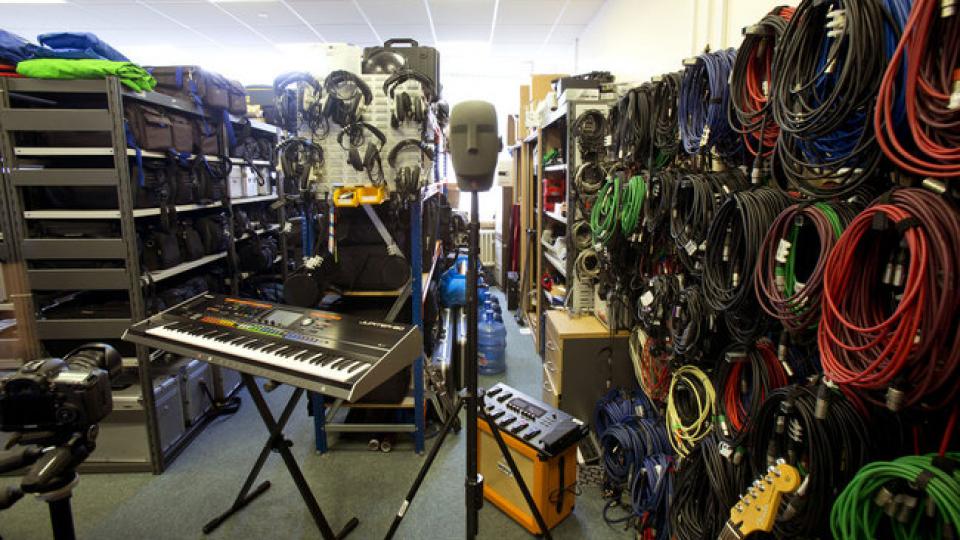
Media Resource Centre
At our Media Resource Centre (used by all subject areas) you'll find extensive portable audio recording systems, including up to 24 track digital HD recording and portable Focusrite RedNet systems.
There is also video-camera and accessory support, including LED and tungsten lighting systems, track and dolly systems and stedi-cam rigs.
Student life at UWL
Important notes for applicants
Disclaimer
*Modern universities - defined as higher education institutions that were granted university status in, and subsequent to, 1992.
**The National Student Survey 2023 and 2024 - Average of answers to all questions by registered student population. Excludes specialist institutions.
Testimonials - our students or former students provided all of our testimonials - often a student from the course but sometimes another student. For example, the testimonial often comes from another UWL student when the course is new.
Optional modules - where optional modules are offered they will run subject to staff availability and viable student numbers opting to take the module.
Videos - all videos on our course pages were accurate at the time of filming. In some cases a new Course Leader has joined the University since the video was filmed.
Availability of placements - if you choose a course with placement/internship route we would like to advise you that if a placement/internship opportunity does not arise when you are expected to undertake the placement then the University will automatically transfer you to the non-internship route, this is to ensure you are still successful in being awarded a degree.


